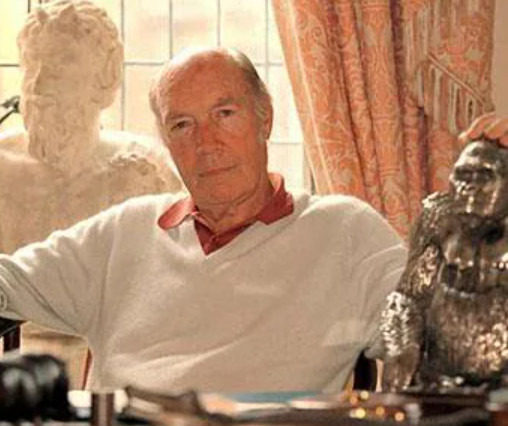
John Aspinall
Childhood
Born on 11 June 1926 in Delhi, British India, John Aspinall was the son of Lt-Col. Dr. Robert Stivala Aspinall, a British Army surgeon of Maltese descent, and Mary Grace Horn. After his parents' divorce, his mother remarried Sir George Osborne, a baronet, who sent Aspinall to Rugby School. However, he was expelled for poor academic performance and later attended Jesus College, Oxford—though he never graduated, opting instead to skip his final exams to attend the Gold Cup at Ascot.
Career
Gambling Empire
Aspinall began his career as a bookmaker, but his true success came from hosting exclusive, high-stakes private gambling parties in London. At the time, casino gambling was illegal in the UK, but Aspinall exploited a legal loophole by organizing private Chemin de Fer (Chemmy) games in rented properties. His events attracted aristocrats, politicians, and wealthy elites, with bets often reaching tens of thousands of pounds.
In 1958, Aspinall faced legal trouble when police raided one of his games. He successfully defended himself in court, leading to a landmark ruling known as Aspinall’s Law, which temporarily legitimized private gambling. However, the British government soon passed the Betting and Gaming Act 1960, regulating casinos and ending Aspinall’s underground operations.
Undeterred, he founded the Clermont Club in 1962, a prestigious Mayfair casino catering to London’s elite. Rumors later surfaced that Aspinall collaborated with gangsters to cheat wealthy patrons, though these claims remain disputed. He sold the Clermont in 1972 but later returned to the gambling industry, opening additional clubs in Knightsbridge and Mayfair.
Wildlife Conservation
Alongside his gambling ventures, Aspinall was a passionate animal lover. In 1956, he purchased Howletts, a country estate in Kent, where he established a private zoo. He later acquired Port Lympne Zoo, expanding his efforts in breeding endangered species. Both zoos are now managed by the Aspinall Foundation, which continues his conservation work.
Personal life
Aspinall was married three times:
- Jane Gordon Hastings (1956–1966) – mother of his son, Damian Aspinall.
- Belinda Mary Musker (1966–1972) – no children.
- Lady Sarah Curzon (1972–2000) – mother of his son, Bassa Wulfhere Aspinall.
He had connections to high society, including a controversial association with Lord Lucan, who disappeared in 1974 after being accused of murder. Aspinall claimed Lucan had committed suicide, though speculation persists.
Revenue
Aspinall’s gambling ventures generated vast wealth, but his lavish lifestyle and zoo expenses often left him in financial trouble. He reportedly made $30 million from selling his casinos in 1983 but faced further financial difficulties in the 1990s, prompting him to open Aspinalls, a new gambling club.
Interesting facts
Aspinall was expelled from school and dropped out of Oxford.
He once lost £173,500 in a single night of gambling—then convinced the winner to return the money.
His zoos were known for allowing close interactions between keepers and animals, leading to several fatal incidents.
He ran for Parliament in 1997 under the Referendum Party but lost.
Legacy
John Aspinall remains a polarizing figure—a charismatic gambler who revolutionized London’s casino scene while dedicating his later years to wildlife conservation. His zoos continue to operate, and his name remains synonymous with high-stakes gambling and eccentric ambition.
Frequently asked Questions
Aspinall built his wealth through high-stakes private gambling parties and later through his exclusive casinos, including the Clermont Club.
Aspinall was a close friend of Lord Lucan and claimed he had committed suicide after disappearing in 1974. However, rumors suggest Aspinall may have helped Lucan evade authorities.
Yes, Howletts and Port Lympne are now run by the Aspinall Foundation, focusing on endangered species conservation.
Yes, he was charged in 1958 but won the case, leading to the term Aspinall’s Law. However, new gambling regulations later forced him to adapt his business model.
At his peak, he was worth millions, but his extravagant spending and zoo expenses plagued him throughout his life, causing financial troubles.












